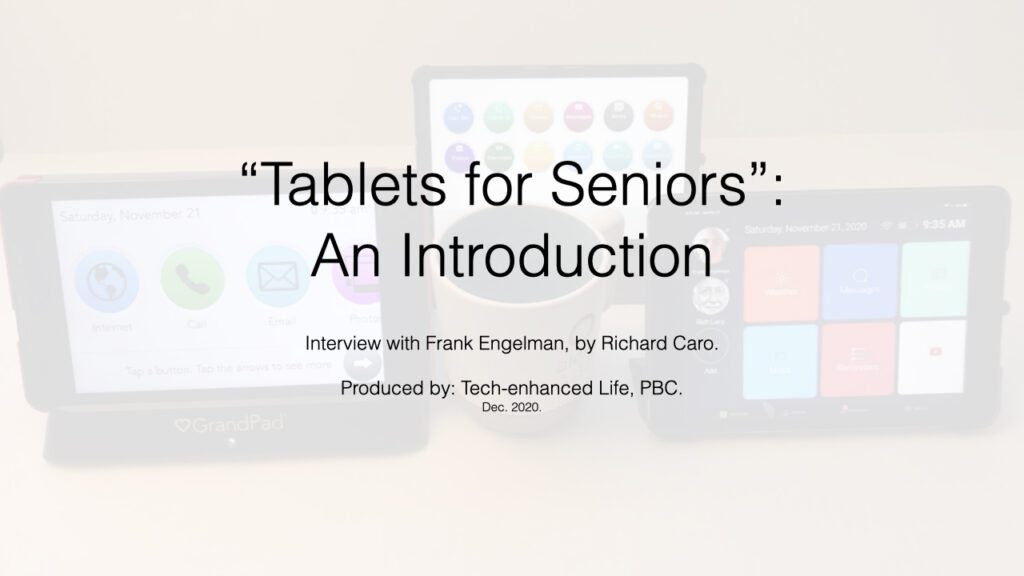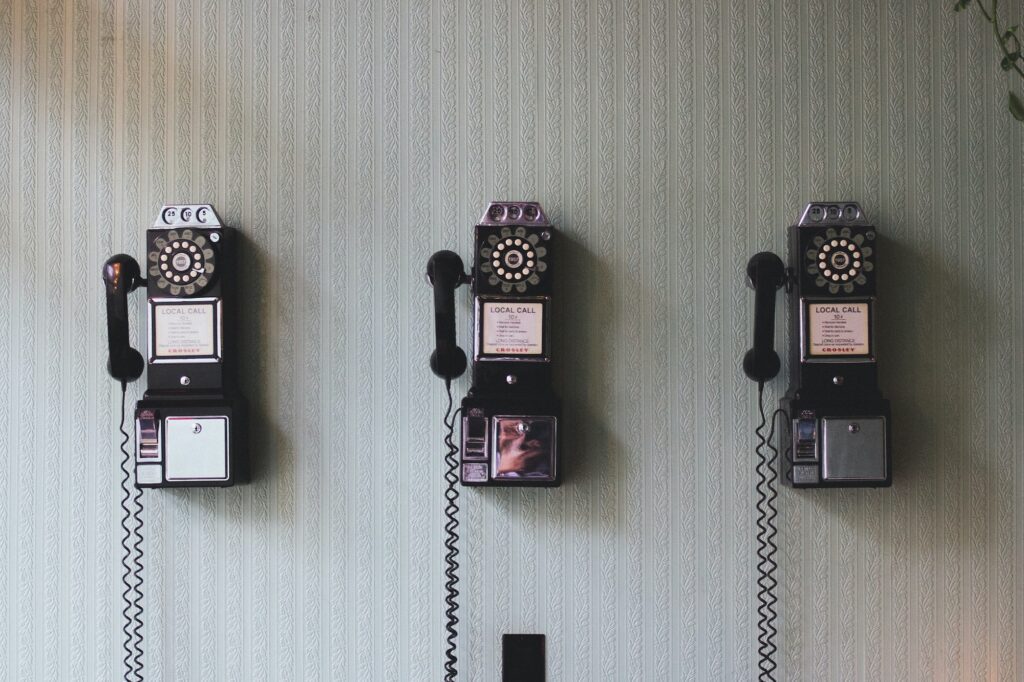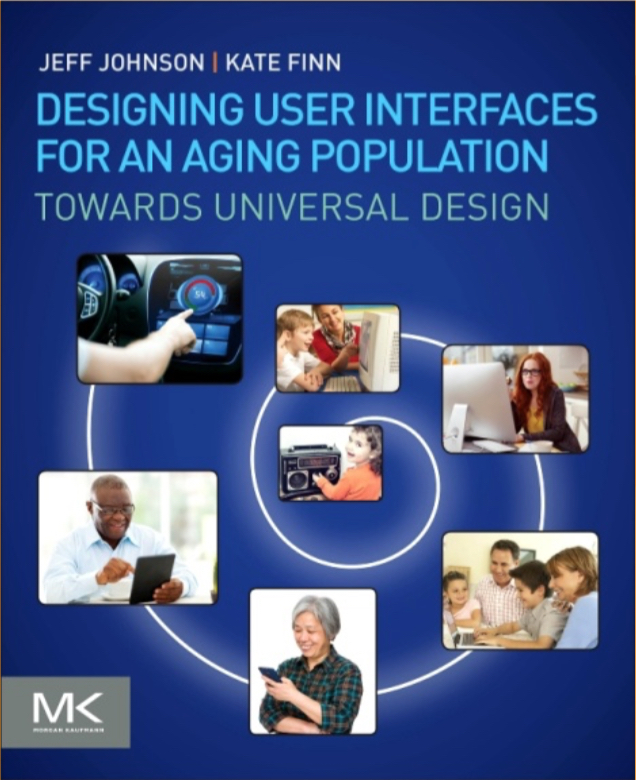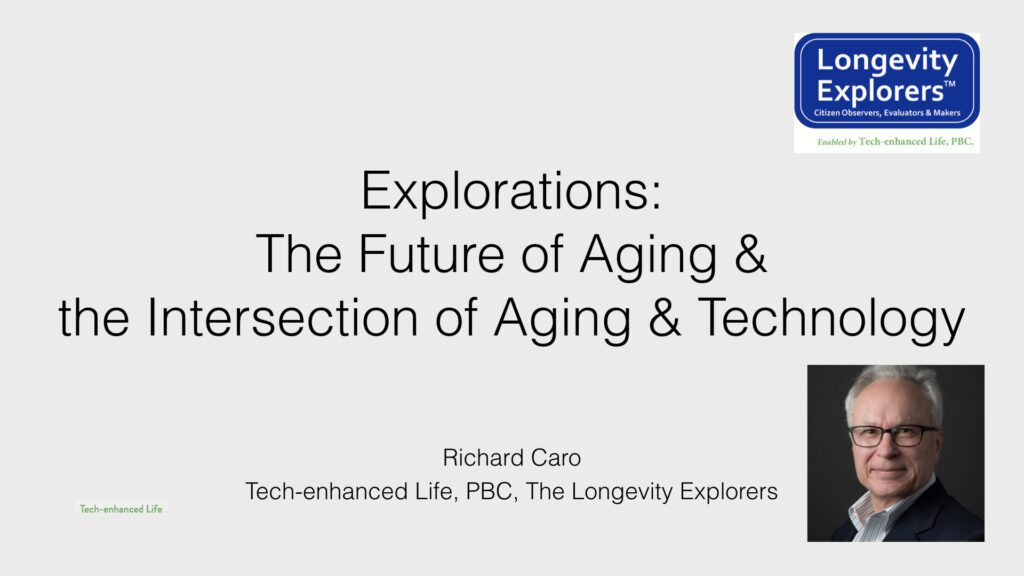 Richard Caro
Richard Caro
My Articles on Tech-enhanced Life
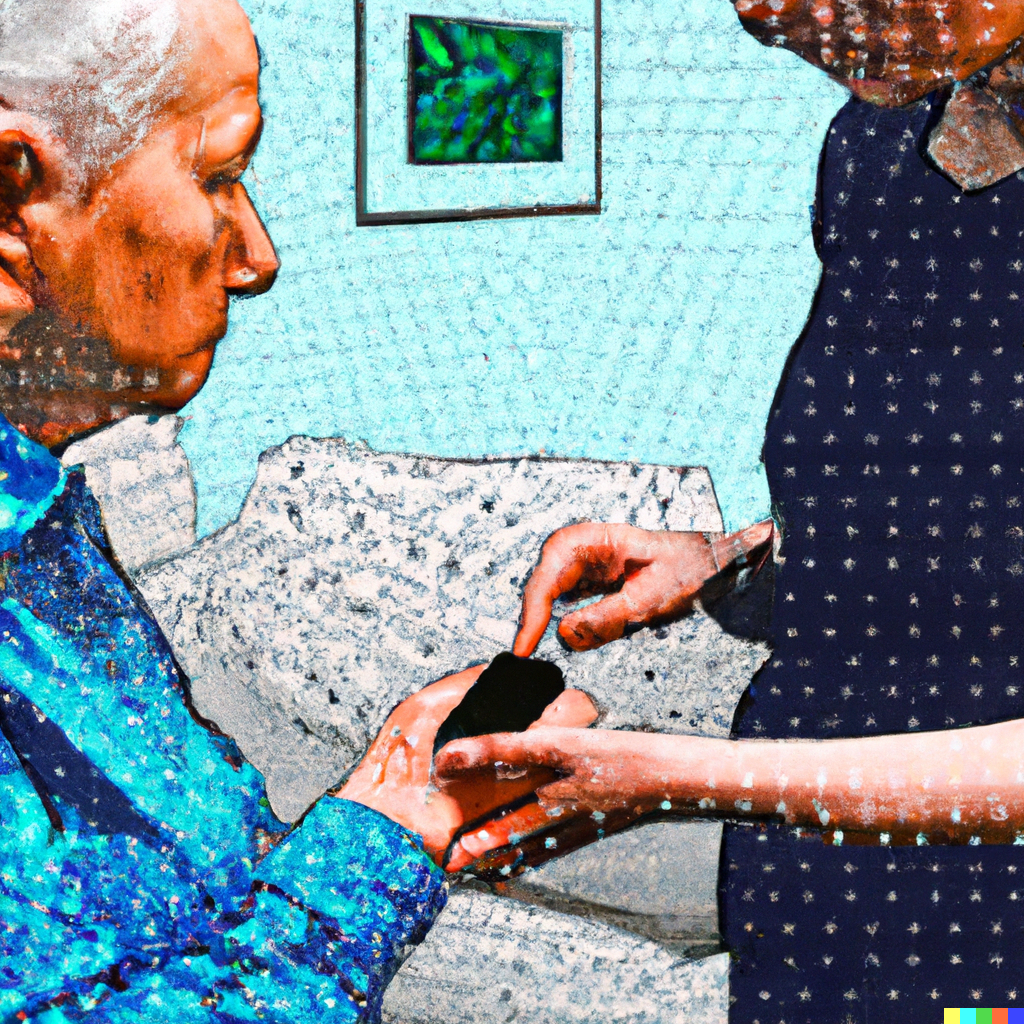
“Smarthome Features as a Service” for Older Adults
Longevity Explorers have reported on how they have used different smarthome features to improve the quality of life of people with vision impairments, people with hearing difficulties, people with limited mobility, and people facing early cognition impairment — as well as people who just find these new capabilities “fun” and “useful”. However, at present there is a “barrier” to widespread adoption of smarthome features that can benefit older adults — the fact that most of the interesting applications require an element of Do-it-Yourself (“DIY”) capability.
We believe there is a big opportunity to broaden the deployment of these empowering smarthome features to others — by using a “smarthome features as a service” model. This Article explains our thinking, and describes a pilot project we are considering in partnership with one of the Villages in Northern California.
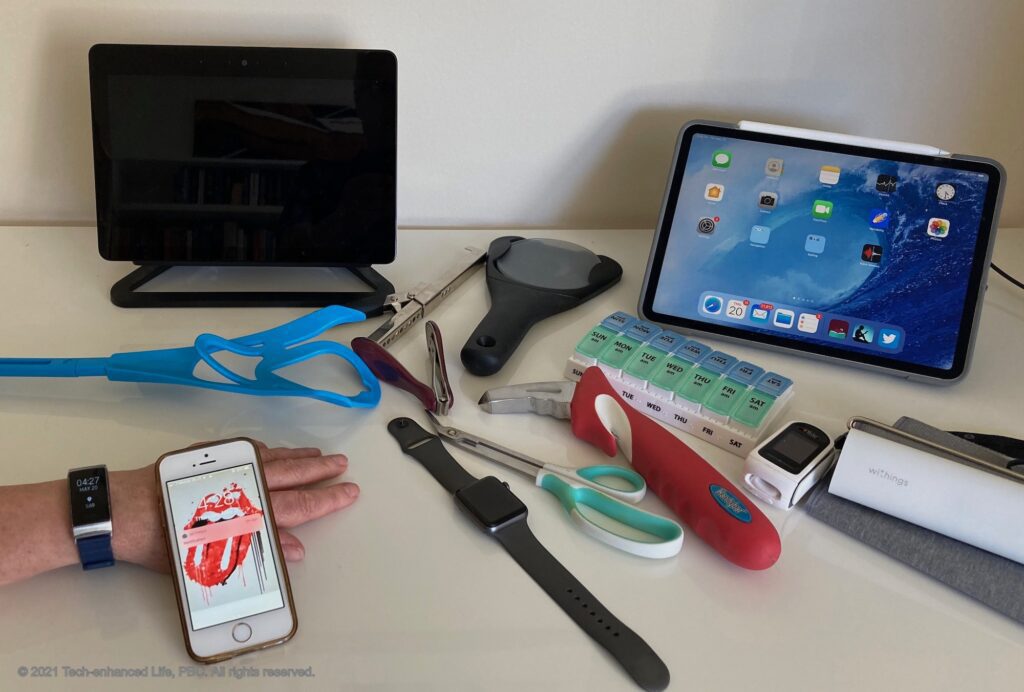
Aging in Place: Why Technology & Gadgets Matter
In my mind, there is a compelling argument that the right gadgets and technology can make aging in place more successful and less expensive. And by more successful, I am thinking in particular of higher quality of life, more autonomy, and less dependence on the kindness of strangers. I don’t think this argument gets made much in the media or by the aging services industry though. So here it is.

Smart Home for Seniors: What, Why?
What is a “Smart Home for Seniors“, we wondered? And how is it different from a normal smart home? And who would want one, and why? And, can you just get some specific smart home features relevant to you — in your current house? Or do you need a whole new house?
This article explores these questions.

Gerontech Products We Wish Existed
Here are some high-impact, gerontechnology product concepts that do not yet exist as commercially available products — although the technology to enable them already largely exists. Our hope for products like these: to significantly postpone the time at which frailty and functional disability get in the way of “living life”
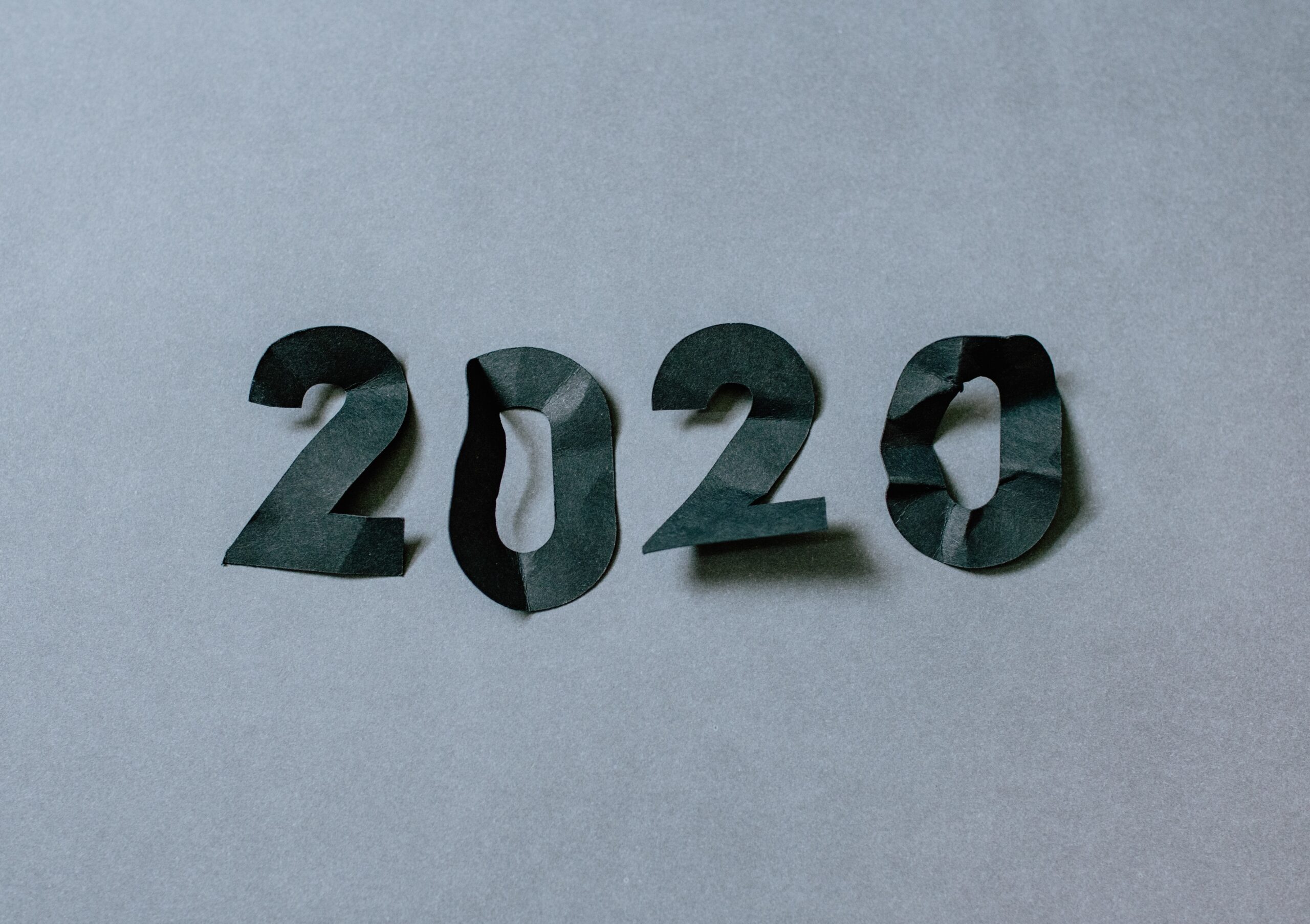
Technology for Older Adults: Notable from 2020
There are a lot of things that have been memorable about 2020. Many of them have been pretty horrible. But, in the area of innovation as it relates to the lives of older adults, we actually see some positive developments, and room for optimism about the future.
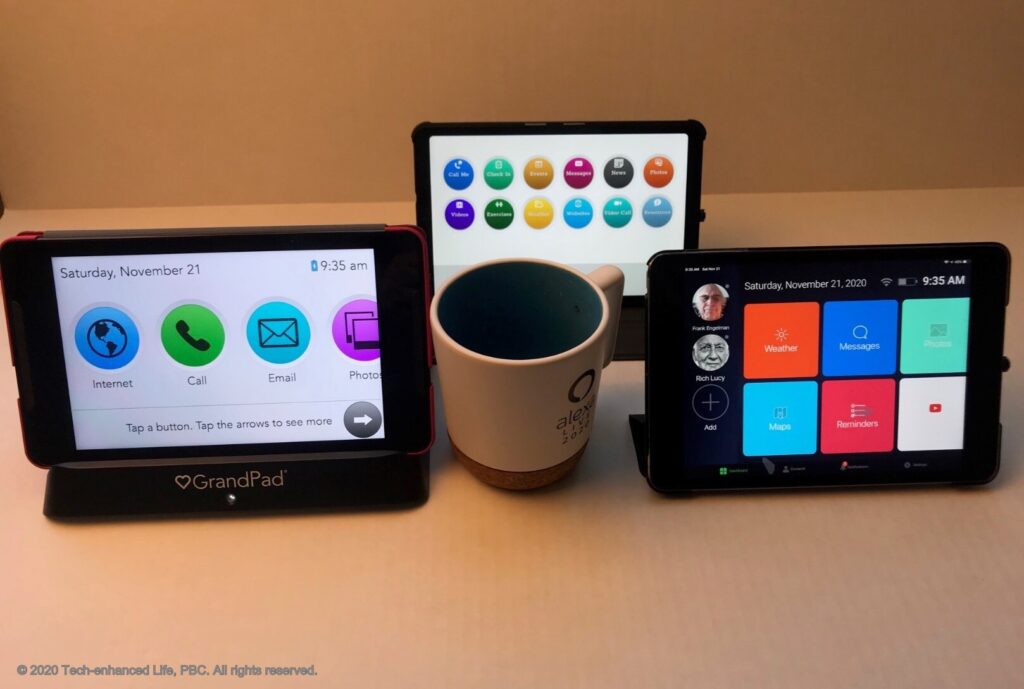
Best Senior Tablet: How to Choose
This article is about a category of product marketed as senior tablets, or tablets for seniors. We explore which type of person would benefit from a senior tablet, rather than a more mainstream product like an iPad, and how to decide which is the best senior tablet for a specific life situation.
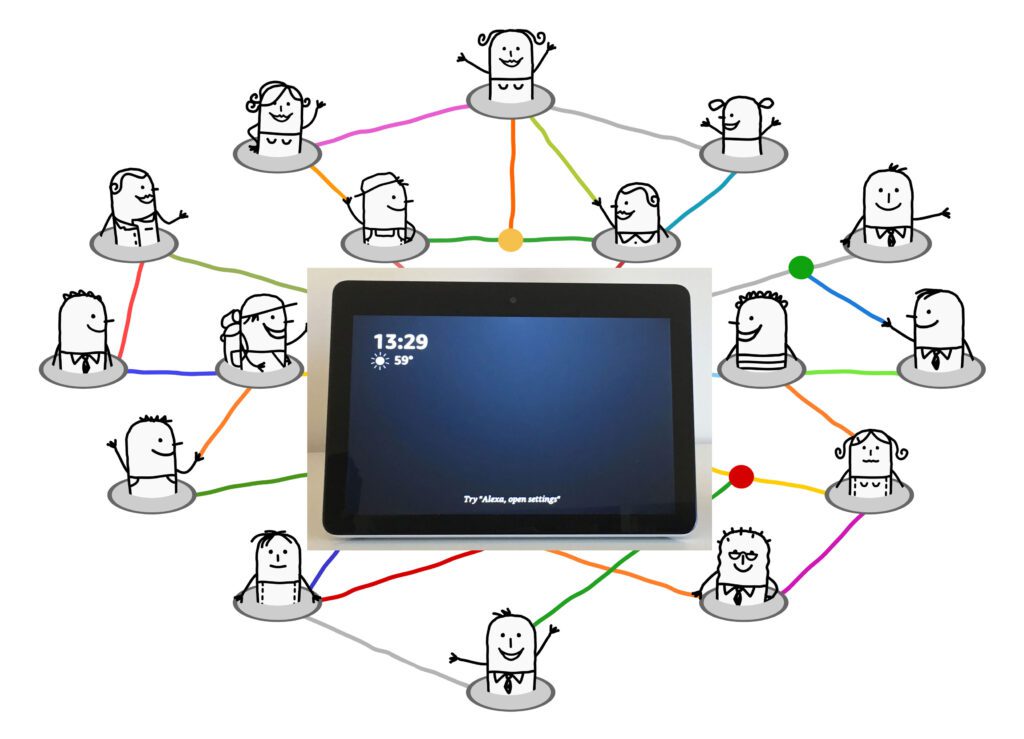
Can Alexa Help Fight Loneliness and Isolation?
Perhaps it seems counterintuitive that an artificial intelligence(AI) might help combat loneliness and isolation. But as our Longevity Explorers evaluate the latest version of Alexa, paired with the Amazon Echo Show, which has an excellent video call capability, we are starting to see great potential for these products to do just that.
And while there are a variety of initiatives evaluating the potential of interactions between older adults and Alexa (Amazon’s artificial intelligence) as a way to reduce loneliness, we think the communication capabilities of the Echo Show may make possible deeper human to human interactions (with friends and family for example) as well.
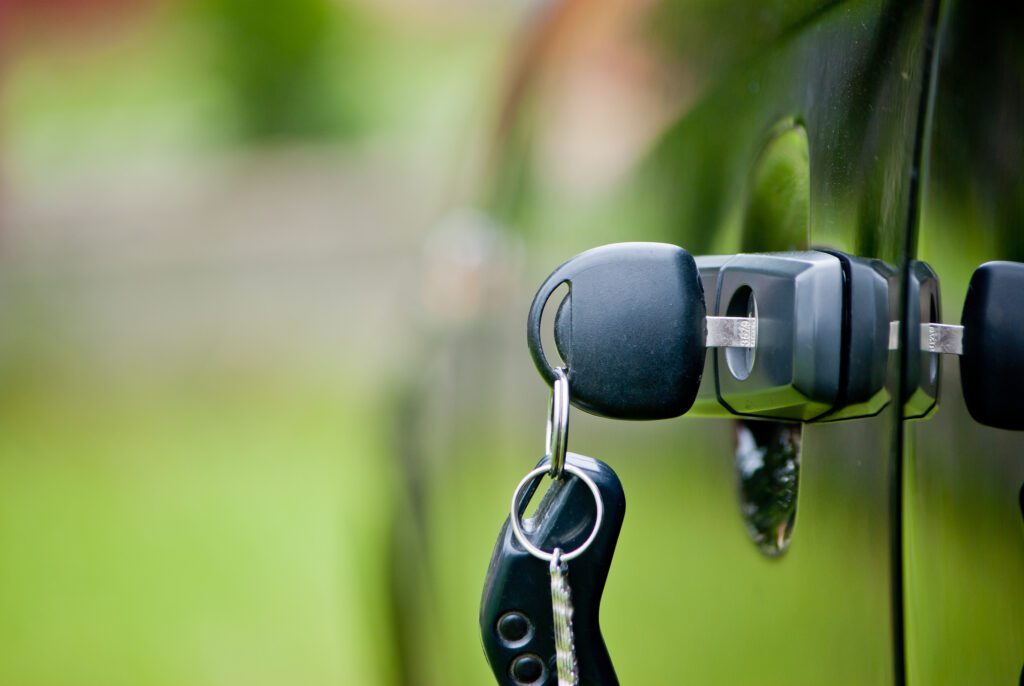
When to Stop Driving: Who Decides, & How?
No-one wants to cause an accident. But for many older adults, being able to drive is a sign that they are still in control of their own destiny, and a strong symbol of liberty and freedom. So the question “When to stop driving?” is a thorny one. Equally important are the questions: “Who should decide it’s time to stop driving?” and “How to decide?“
My Background:
Dr. Richard G. Caro has 30+ years of experience at the intersection of technology and business — as startup CEO; startup CTO; scientist / inventor; angel investor; and advisor to emerging growth companies.
Dr. Caro was Co-founder of Tech-enhanced Life, PBC — a social venture which, together with a virtual community of older adults (the Longevity Explorers), had the goals of exploring the intersection of aging and technology and seeking ways to leverage technology to enhance quality of life as people age. He was also CEO of TangibleFuture, Inc., an advisory services firm which he founded in 2004 to help innovators turn advances in science and technology into successful businesses.
From 1986 to 1999 Richard held operational roles in high tech companies in Silicon Valley and Boston. He was CEO (founder) of Vital Insite, a venture-backed, medical device start-up, developing noninvasive monitoring products; Engineering Program Manager at Coherent, one of the world’s largest laser manufacturers; and CTO (employee #5) of Summit Technology, a pioneer in the laser refractive surgery (LASIK) business. Before entering industry, he was a member of the research staff at Stanford University.
Immediately prior to founding TangibleFuture, Richard was Managing Director at RHK, a provider of advisory services to the communications industry, where he led consulting engagements with multinational businesses such as Intel, and Carl Zeiss; research institutions such as Battelle, and Sarnoff Corporation; and a variety of emerging startup companies.
Dr. Caro has particular expertise in the process of transforming technical innovation into profitable businesses. He has been a mentor in business plan competitions at UC Berkeley, University of San Francisco, and the Cleantech Open; was a member of the “Entrepreneur in Readiness” program at Lawrence Livermore National Laboratory from 2008 to 2012; and in 2013 & 2015 was a mentor in Steve Blank’s course at UCSF: Lean Launchpad for Life Sciences & Healthcare. In 2017 he was the industry expert on a startup team that was selected for, and graduated from, the NIH I-Corps program.
Dr. Caro has been responsible for the development of a number of successful products; and has 24 issued patents. For many years he has been an “occasional” Silicon Valley angel investor. He has deep domain expertise in the fields of agetech; medical devices / healthcare; digital health; telecom; and photonics.
Born and raised in Australia, Richard received a B.Sc. (Hons.) degree from Melbourne University, Australia (1977), and a D.Phil. in experimental physics from Oxford University (1982) — where he was a Rhodes Scholar. In 1982 he was awarded an IBM post-doctoral fellowship to work at Stanford University, and moved to the USA where he has lived ever since.
